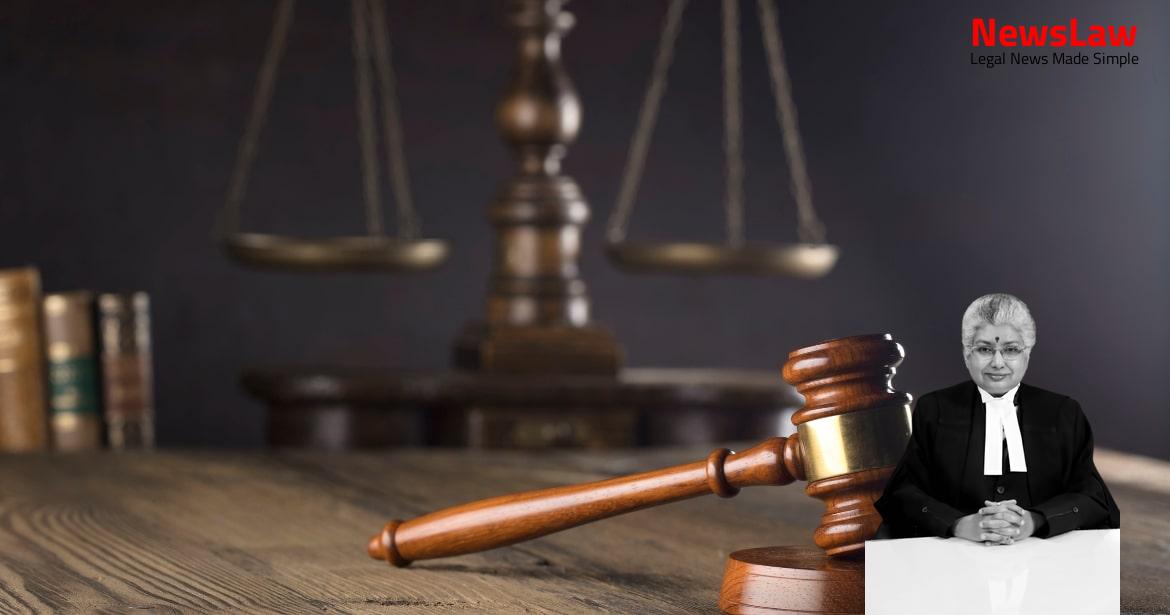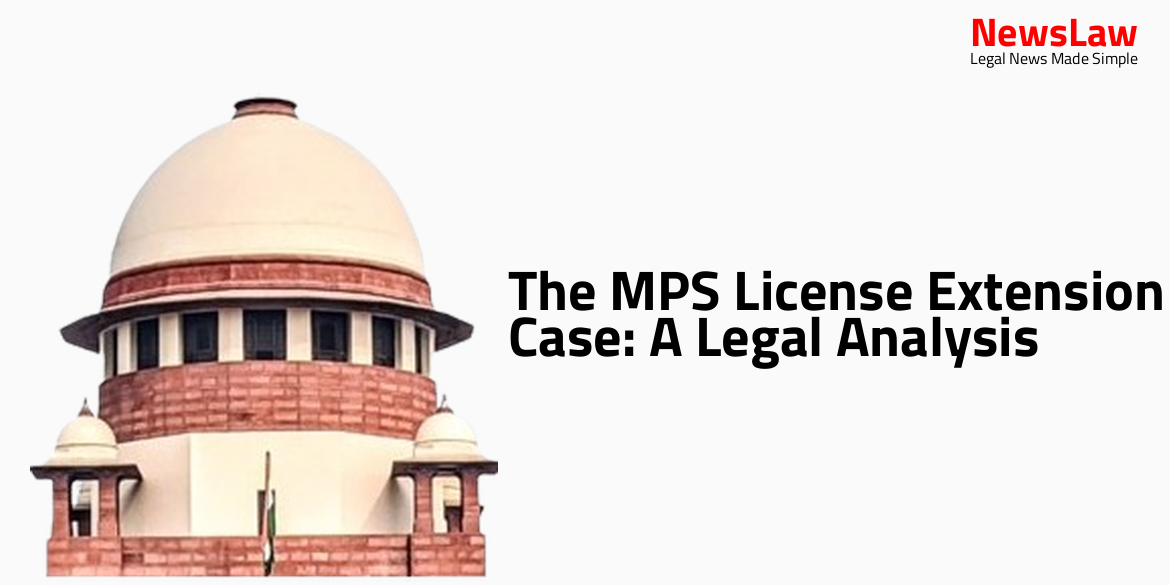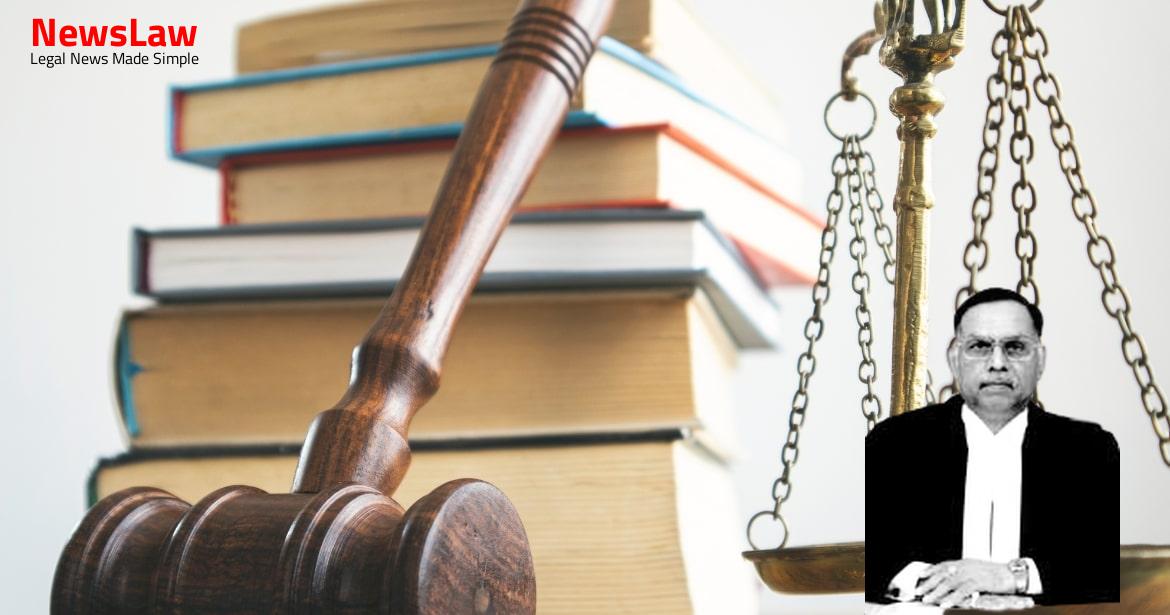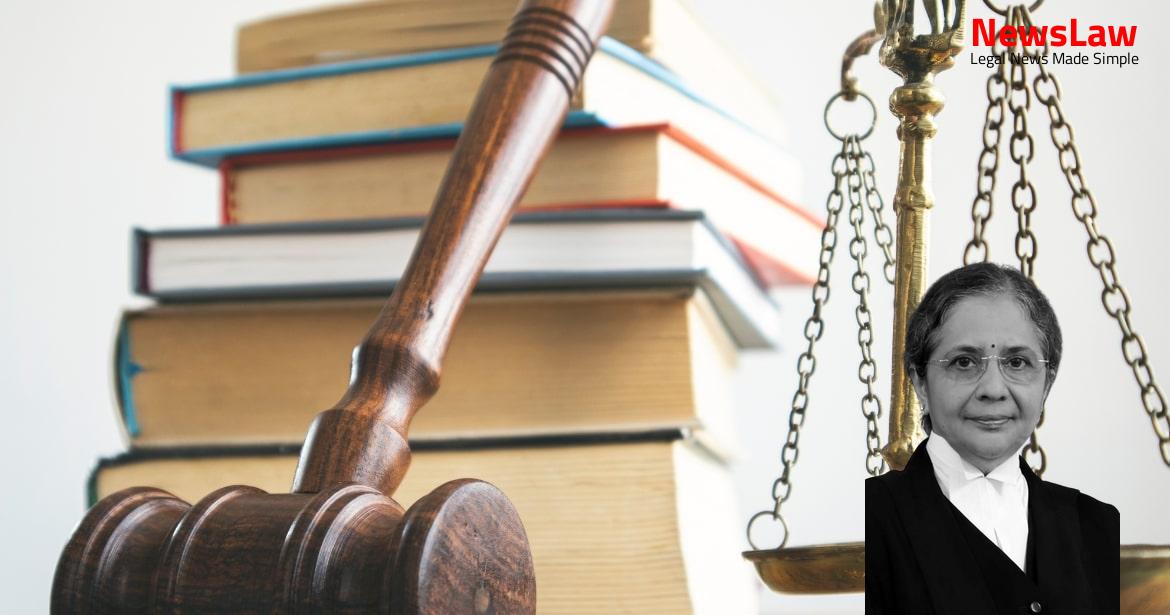Delve into an examination of the court’s legal analysis regarding time limits set in agreements for specific performance. The court’s interpretation and application of contractual obligations, particularly in relation to the specified timeframes, play a crucial role in shaping the outcome of the case. Let’s explore the nuances of contract law through a detailed look at this insightful legal analysis.
Facts
- The plaintiff responded to the defendant’s communication on 20 October 1978, seeking confirmation of obtaining permission from the ULC Authorities to sell the property.
- The defendant executed an agreement of sale with the plaintiff for a total consideration of Rs. 45,315/-.
- The defendant applied for exemption under Section 20 of the ULC Act on 8 December 1978.
- On 12 April 1982, the defendant informed the plaintiff that the necessary permission from ULC Authorities could not be obtained and canceled the sale agreement.
- The plaintiff filed a suit for specific performance of the agreement dated 29 July 1978 as the defendant was not responding.
- The trial court decreed the suit in favor of the plaintiff, directing the defendant to execute the sale deed within two months.
- The Government of Andhra Pradesh granted exemption to the defendant under Section 20 of the ULC Act on 7 February 1984.
- Plaintiff was not entitled to get back the advance money after the 90-day period.
- Defendant was entitled to forfeit the advance money if permission was not obtained within 75 days.
- Division Bench directed defendants to refund the advance amount of Rs.15,000/- with interest or a total of Rs.3,00,000/-.
- Both parties tried to get exemption under ULC Act for about a year after the sale agreement in 1978.
- Defendant communicated cancellation of agreement in 1982 due to lack of permission from ULC Authorities.
- Plaintiff did not take any action against defendant despite cancellation.
- Limit of 90 days was fixed for the agreement of sale purposes.
- Single Judge allowed appeal and dismissed plaintiff’s suit, leading to an appeal before the Division Bench.
Also Read: Presumption of Genuine Endorsements in Cheque Case
Arguments
- The petitioner submitted that the Single Judge and Division Bench made errors in interpretation and imported a non-existent condition.
- They also erred in denying specific relief and made findings based on misinterpretation of evidence.
- On the other hand, Shri Sridhar argued that the conduct of the plaintiff did not merit specific relief as held by both courts.
- Shri Rao contended that the Single Judge erred in overturning the trial court’s judgment.
- The Single Judge reversed the judgment and decree of the trial court based on Clauses 3 and 5 of the agreement of sale.
- Clause 3 states that the sale deed must be executed within three months from the date of the agreement, upon receiving intimation of necessary permissions, or upon mutual agreement.
- Failure to pay the balance of consideration within the stipulated period makes it difficult for the vendor to execute the sale deed.
- The respondent argued that there should be no interference in the present appeal.
Also Read: Medical Negligence and Compensation: A Landmark Decision
Analysis
- The agreement of sale shall stand cancelled if the vendor does not obtain permission for alienation under Urban Land Ceiling Act within 75 days from the date of the agreement.
- The vendor is solely responsible for obtaining the necessary permission.
- The purchaser is entitled to get back the advance paid after 75 days from the date of the agreement, but not later than 90 days.
- After almost 2 years of obtaining permission, the plaintiff chose to file the suit.
- The Division Bench of the High Court concurred with the learned Single Judge’s view on terms of the agreement.
- No decree for specific performance was granted by both the Single Judge and Division Bench.
- Defendant received Rs.15,000/- in 1978, hence directed to pay Rs.15,00,000/- to the plaintiffs.
- Payment of Rs.15,00,000/- to be made within 3 months from the date of judgment.
- Appeal allowed with the specified payment terms.
- Pending applications to be disposed of accordingly.
- No order given regarding costs.
- In the case of K.S. Vidyanadam and Others v. Vairavan, the court should consider all relevant circumstances, including specified time limits in the agreement, when determining the granting of specific performance.
- The court must exercise discretion while considering time limits set by parties in the agreement, not ignoring them completely on the basis that time is not the essence of the contract.
- In this specific case, the agreement of sale stated that if permission was not obtained within 75 days, the purchaser could reclaim their advance money between 75 and 90 days.
- The defendant terminated the agreement on 12 April 1982 due to permission issues, and the plaintiff only took action after ULC permission was granted on 7 February 1984.
Also Read: Remand of Writ Petition for Restoration and Decision on Merits
Case Title: KOLLI SATYANARAYANA (SINCE DEAD) BY LRS. Vs. V. KESAVA RAO CHOWDARY (D) BY LRS.. (2022 INSC 1026)
Case Number: C.A. No.-001013-001013 / 2014



